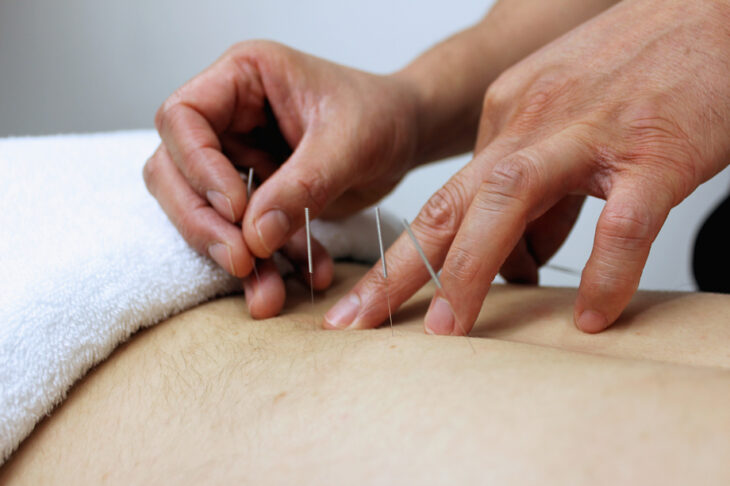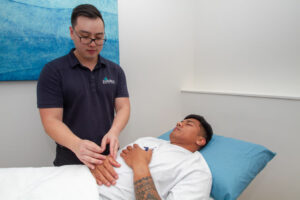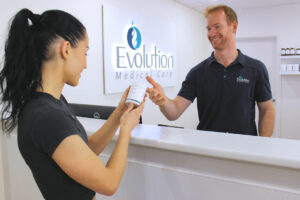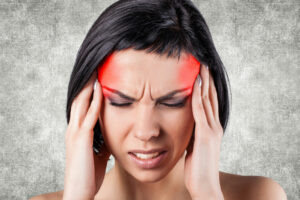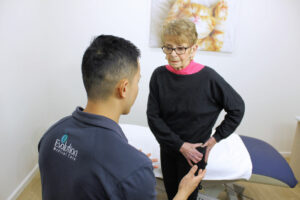As an Acupuncturist, one of the most common questions that I get asked is ‘What is the difference between Dry Needling and Acupuncture’?
To be honest, I completely relate to this question and understand why there is so much confusion for the average person, because:
- They both involve inserting fine needles into the body
- They are both known to treat pain
- Neither involve medications
- And; both are typically performed by healthcare professionals
As an Acupuncturist, however, I have a completely different understanding of the topic and if you have been considering this question yourself, keep reading because I am going to break down:
- What is Dry Needling
- What is Acupuncture
- How are the 2 different and when would I recommend one over the other?
Dry Needling
With all things considered, Dry Needling is a very new treatment when it comes to healthcare and is not a regulated profession, meaning there is no standardised requirement to perform Dry Needling.
When performing Dry Needling, a practitioner inserts several Filiform needles into the skin. Filiform needles are simply very fine (0.5-0.16mm wide) needles that are not hollow like those used to inject liquids containing pharmaceuticals. Hence the name, ‘Dry Needling’, because nothing is injected.
Dry Needling was developed in relation to Trigger Point release therapies by Travell & Simons in the 1940s and has been used by various healthcare professionals since then including Physiotherapists, Chiropractors, Massage Therapists, General Practitioners, Naturopaths, Homeopaths, Ayurvedic practitioners, Reiki practitioners & Reflexologists.
What are the Requirements to Perform Dry Needling?
There is no requirement for training to perform Dry Needling in Australia.
Due to this lack of training requirement and licensing regarding who is able to apply Dry Needling, it is also at times applied by non-medical professionals such as Personal Trainers and Yogi practitioners to name a few.
What is Dry Needling Used For?
Dry Needling is typically used alongside other treatments that the practitioner has at their disposal, whether that be myofascial release techniques such as Remedial Massage or Trigger Point Therapy or other therapies; whether that be HVLA (High-Velocity Low Amplitude) ‘cracking’ manipulations performed by a Chiropractor or even stretching exercises that a personal trainer may employ or energetic breathwork that a Yogi teacher may use to release tension.
Most commonly, Dry Needling is used by Physiotherapists, General Practitioners, Chiropractors or Osteopaths. They may use it to:
- Treat many different types of musculoskeletal pain by identifying active trigger points and inserting needles into these areas in order to ‘release’ active trigger points and related musculoskeletal pains.
- Decrease tension in the muscular system in order to improve physical range of movement to make it easier to perform everyday tasks.
Does Dry Needling Work?
This is a great question! There are certainly lots of positive reports about Dry Needling providing beneficial outcomes in relation to pain relief from lots of musculoskeletal aches and pains.
Part of the issue is that there are very few scientific studies on Dry Needling. From the research summaries that are available, it is safe to say that Dry Needling is effective for relieving mild to moderate pains.
The biggest issue is of course that Dry Needling is unregulated and not at all standardised. Outside of a scientific study where they are applying a uniform treatment protocol, what you experience from practitioner to practitioner may be completely different and achieve vastly different outcomes.
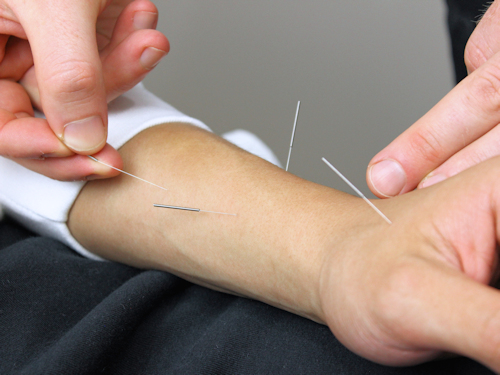
Acupuncture
In comparison to many other healthcare professions and treatment techniques, Acupuncture is considered to be ancient, with the earliest references of Acupuncture dating back up to 5000 years ago.
What are the Requirements to Perform Acupuncture?
To become an Acupuncturist, there are highly regulated courses of study of a minimum of 4 years full-time in order to learn how to use Acupuncture safely and effectively. In addition to this, in Australia, an Acupuncturist is also a nationally registered healthcare profession governed by AHPRA (Australian Healthcare Professional Regulation Agency) which requires ongoing professional indemnity insurance and continuing professional development.
Similar to Dry Needling an Acupuncturist performs Acupuncture by inserting fine filiform needles into the skin and does not involve any kind of injection. And that’s about where the similarities between the two treatments end.
What Makes Acupuncture Different to Dry Needling?
Acupuncture developed thousands of years ago as a part of traditional medical systems such as Traditional Chinese Medicine (TCM) which certainly popularised the practice. The truth is that due to the age of the practice of Acupuncture, that it isn’t known for certain where it originated but was common in China, India, Taiwan, Korea & Japan all with varying styles of Acupuncture.
What makes Acupuncture different to Dry Needling is the thought process about why and where the needles are placed, how the needles are inserted and how they are stimulated. This might not sound like a lot, but in practice it means that the health outcomes which are achievable with Acupuncture are far more diverse and holistic than the simplistic, localised approach of Dry Needling used to relieve pain.
With the development of scientific understanding of human anatomy and physiology, it is being more and more understood that when inserted, Acupuncture needles stimulate sensory nerves to:
- Decrease muscular tension and pain locally
- Improve physical range of movement
- Stimulate the release of endorphins to decrease stress and anxiety
- Have reflex effects on different parts of the nervous system
Dry needling is a small part of what healthcare professionals use, and as a rule these healthcare professionals have more refined training in other areas of their profession. An Acupuncturist specialises in Acupuncture and may use other therapies in order to supplement this to achieve outcomes for the patient.
What is Acupuncture Used For?
Of all medical professions, Acupuncture has had an extremely large amount of scientific research undertaken in relation to it. There are even numerous organisations publishing summaries of what research has to say about HOW Acupuncture helps with different healthcare complaints like the Evidence Based Acupuncture organisation or AACMA’s(Australian Acupuncture & Chinese Medicine Association) publication, the Acupuncture Evidence Project.
There is substantial evidence to support that Acupuncture is able to assist with:
- Allergic Rhinitis/Sinusitis
- Nausea
- Neck, Back Pain & Sciatica
- Headaches & Migraines
- Knee Arthritis
- Post-operative pain
- Anxiety, Depression & PTSD
- Insomnia
- Irritable Bowel Syndrome
- Elbow Pain
- Menopausal Symptoms including hot flushes and insomnia
- Stroke Rehabilitation & Post-Stroke Symptoms including insomnia, shoulder pain, spasticity
- Shoulder Impingement & Pain
- Jaw Pain
This list is not absolute, and there is always more research necessary to further refine what can and cannot be improved with Acupuncture.
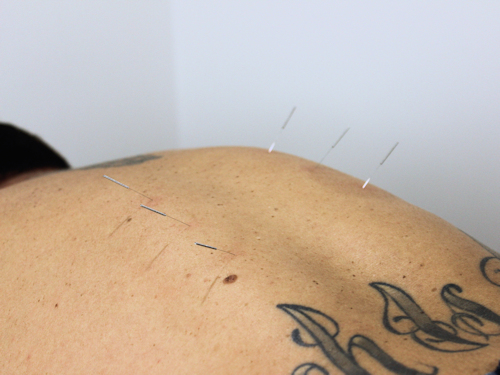
Are Acupuncture and Dry Needling Safe?
Assuming that the practitioner uses sterile, disposable needles, side effects of treatment are infrequent.
When side effects do occur as a result of these practices, they are not overly serious with most people who do experience side effects reporting:
- Mild bleeding
- Tenderness or discomfort
- Bruising
- Fatigue/Sleepiness/Light-headedness
For both practices, there is potential risk of a punctured lung in the case of a needle being inserted too deeply around the rib-cage and close to the lungs. The issue is that lungs are very delicate and bleed easily which is a life-threatening scenario requiring hospitalisation.
Should You Choose Dry Needling or Acupuncture?
If you are in need of help for a healthcare complaint, certainly it’s worthwhile considering what kind of healthcare professionals are nearby to you and what type of complaints they are experienced in dealing with. Acupuncture & Dry Needling undeniably are each valuable treatment modalities.
It is, however, an extremely important question to ask yourself:
- What type of issue are you after help with?
- What level of care are you seeking?
If you are experiencing muscular aches and pains it may be worthwhile to consider seeking care from a healthcare professional experienced in treating aches and pains that provides Dry Needling.
If you are experiencing healthcare issues that may include muscular aches and pains or also other healthcare complaints as previously mentioned and an Acupuncturist is nearby, it is always advisable to seek care from an expert in the field that is an Acupuncturist who is able to perform both Acupuncture and Dry Needling.
As for ‘unregulated’, it may come as a shock to many readers, but there is literally no requirement for training to perform Dry Needling. Training courses vary from in-person training events ranging from several hours to several days to online training courses with literally no physical assessment or hands-on training required. These courses are literally available in Australia and you can check out the links yourself to read the truth.
This level of ‘training’ or lack thereof, is a very stark difference to what an Acupuncturist undertakes to gain specialised skills: 4 years full-time study focused on Acupuncture; how to apply Acupuncture safely and how to apply Acupuncture for greatest outcomes. In addition to that, a minimum of 900 hours clinical supervision and ongoing requirements to undertake specialised Acupuncture training.
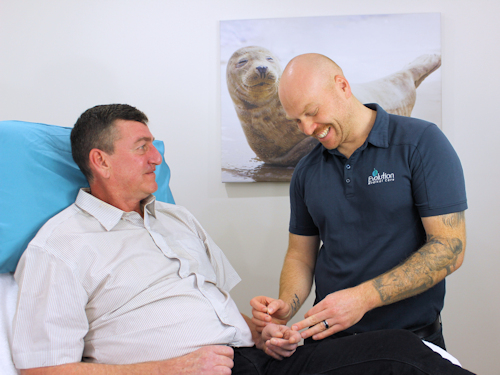
The Point of It All
I hope this has helped shed some light on what is, perhaps the most commonly asked question and what is undeniably a commonly misunderstood idea that I come across in working with thousands of patients each year: that Acupuncture & Dry Needling are one and the same.
If you or someone that you know are considering these treatment options for a healthcare complaint, please reach out to our friendly team on (02) 4709 6727. We would be glad to discuss what is going on in your situation and how we can help you.

